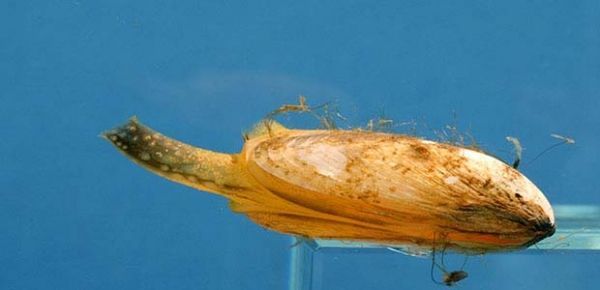Since hitching unsolicited rides in boat ballast water in the late 1980s, invasive quagga mussels (Dreissena rostriformis bugensis), which are native to Ukraine, have caused massive changes to the ecology of the Great Lakes. These invasive mussels have also taken a toll on the Great Lakes recreational and commercial fisheries, which are valued at $4-7 billion annually according to Michigan Sea Grant.
Since hitching unsolicited rides in boat ballast water in the late 1980s, invasive quagga mussels (Dreissena rostriformis bugensis), which are native to Ukraine, have caused massive changes to the ecology of the Great Lakes. These invasive mussels have also taken a toll on the Great Lakes recreational and commercial fisheries, which are valued at $4-7 billion annually according to Michigan Sea Grant.
The quagga mussel had a sluggish start in its early expansion but is now present in large numbers far exceeding those of another invasive mussel in the Great Lakes, the zebra mussel, according to a publication by NOAA’s Great Lakes Environmental Research Laboratory (GLERL).
The filter-feeding quagga mussel has a high filtering rate for its size, and coupled with its high abundance, has a significant impact in invaded ecosystems, like the Great Lakes. The mussel uses hair-like cilia on its gills to pull water into its shell through a siphon-like structure. Materials collected are then sorted for ingestion inside the shell or for rejection through the siphon.
The mussel uses hair-like cilia on its gills to pull water containing food particles into its shell cavity through its siphon. Credit: NOAA
By filtering phytoplankton and other materials from lake water, quagga mussels alter both lake habitat and the food web. For example, through their large appetites for phytoplankton, the quagga mussels rob the food web of an important food source for native and non-native fish.
Continue reading at NOAA.
Image via NOAA.




